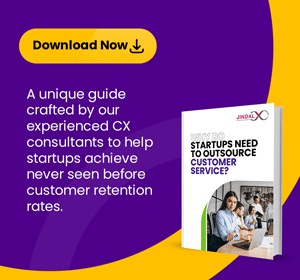Revenue Cycle Management (RCM) is a broader term, focusing largely on the financial aspect of healthcare. While it is often believed that revenue cycle interactions are handled as business processes between healthcare providers and players, the reality is that the patient has emerged to be a key player in such interactions today. With recent advances in technology and easy access to information, patients are able to critically evaluate the healthcare providers before availing of their services. This makes it slightly trickier for providers to cultivate and maintain customer (patient) loyalty. Keeping in mind the current scenario of healthcare revenue cycle chain, the objective is to provide outstanding patient care experiences by trying to address the primary wants of patients to the maximum extent possible.
Revenue Cycle Management – What are the challenges?
Once the importance of consumer-focused revenue cycle management is realized, it is important to reflect on and address its critical challenges, both at its front as well as its back- ends. Much of the interactions with patients at the front end include their scheduling, pre-registration, registration, insurance verification, etc. It is noteworthy that there is every chance of revenue loss if any of the information pertaining to patients is missing or is inaccurate. According to a recent study, one out of five claims is either delayed or denied and 96% of claims are asked to be resubmitted, adding frustration to patients’ woes.
At the back-end of the revenue cycle, the challenges are again multi-fold. Patients often fail to understand the benefits that they receive. They face difficulty in even interpreting the billing statements correctly. Moreover, majority of healthcare providers have multiple sources of contact for billing information, as a result of which patients remain unclear. A lot of time, efforts get wasted in the entire cycle leading to confusion, chaos with less likelihood to pay. A recent survey of patients revealed that 75% of those who paid their bills late/ did not pay were surprised by the out-of-pocket expenses charged on them. Such a situation is equally painful for both patients and healthcare providers.
What do patients actually want?
In order to address such challenges and make Revenue Cycle Management (RCM) a smoother and hassle-free journey, it is important to understand what patients actually want. They basically want clarity, certainty and convenience. They wish to schedule appointments according to their conveniences and communicate with providers through channels that best suit them. An easy-to-interpret information and clear communication is the minimum requirement they possess. Additionally, they would also want a coordinated process of seeking information, without involving multiple sources of contact.
Redefine RCM to a Patient Driven Approach
Considering these factors, a patient-driven approach to managing revenue cycles is need of the hour. Redefining RCM in a way that the transactional side of healthcare becomes satisfying for patients and sound for providers is the key to success. Some of the below- mentioned ways can dramatically transform RCM to a means of providing exceptional services to patients as well as generate sound revenue:
- Early and frequent interactions with patients through their convenient means of communication
- Enhancing patient engagements through tools such as kiosks, online portals and apps, etc.
- Managing patient schedules in accordance to patients’ conveniences
- Making patients aware of their financial obligations regularly with maximum clarity
- Analyzing patients’ historical data for deeper insights and hence, ensuring personalized patient services
- Managing pre-visit requirements such as appointment and scheduling, patient registration, referral verification, eligibility verification and prior authorization completely using digital platforms
- Recording and maintaining post-visit data and administering claims
- Analyzing data using advanced Healthcare Softwares to derive deeper meaningful 360° insights
Synchronizing channels and following a patient-centric RCM approach will, undoubtedly lead to improving patient loyalty, creating healthier relationships and maintaining healthier cash flow. An optimized, well-defined RCM is hence, the secret to more satisfying healthcare services.
JindalX Advantage
JindalX is a global business outsourcing company creating success stories for over 20 years. We’re the dreamers, creators, and innovators with a vision to help our business partners, clients, and people achieve exponential growth. We have extensive experience in taking care of our clients’ requirements through our:
Omni-channel Support – Chat | Email | Voice | Social Media
- Absolute accuracy & optimum CX with up to 4 concurrent chats
- Fastest response time and 24×7 support
- Propensity engines for intelligent solutions and 90% First-Contact-Resolution (FCR)
- Proactive social media interactions and end-to-end resolution to grievances
We give what your business needs:
- Personalized and human-centric customer support services
- Gamification based process training led by technology
- Customer Engagement for propensity-based x-selling
- Instant support for abandoned carts via multiple touchpoints
- BI led ‘JX Techpack’ to give real-time 360º view of operations









